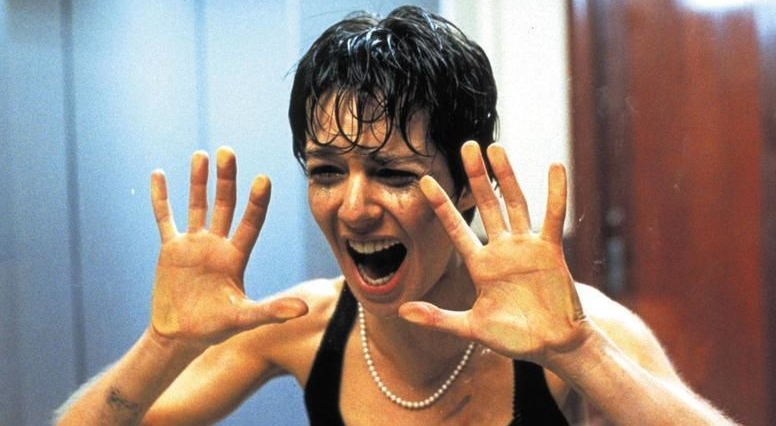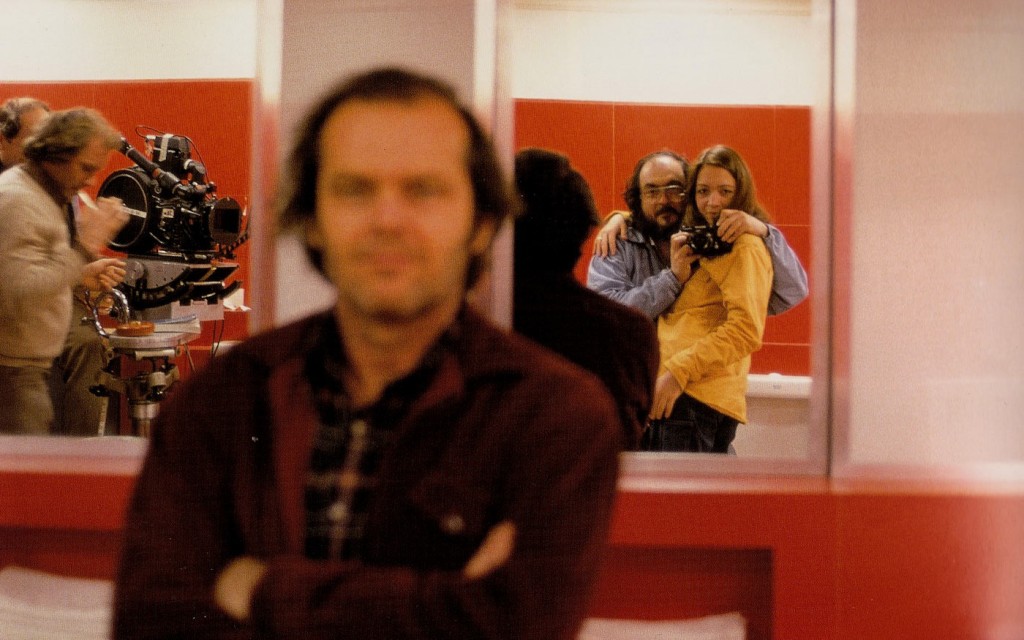The nominations for the 23rd Critics Choice Awards are in and even if the critics don’t vote for the Oscars, they still have an interesting insight into the Oscar race. For starters, the fantasy romance The Shape Of Water led with 14 nominations while Call Me By Your Name, Dunkirk, Lady Bird, and The Post racked up eight nominations apiece. Also, Patrick Stewart pulled off a surprise Supporting Actor nomination for Logan, proving himself to be a major dark horse, and The Big Sick managed to surprise in Best Picture which gives it a much needed boost after under-performing at the Gotham and Independent Spirit Awards.
But with those major surprises comes some major snubs. For instance, The Florida Project cracked the Best Picture field and got an expected Supporting Actor nomination for Willem Dafoe, but nothing for writer/director Sean Baker. Also, Mudbound proved itself to be a formidable awards player by landing nominations in Adapted Screenplay, Supporting Actress for Mary J. Blige, and Cinematography for Rachel Morrison. However, it didn’t land a Best Picture nomination and disappointingly, no Director nomination for Dee Rees. Greta Gerwig managed to crack the Best Director category but who says Gerwig has to be the only woman to do so? Lastly, despite there being seven slots in Supporting Actress, there was no room for presumed heavy hitter Melissa Leo in Novitiate. After getting ignored here and by the Independent Spirit Awards which seemed like an easy get for her, she’ll have to contend on a wing and a prayer.

Full list of nominees:
Best Picture
The Big Sick
Call Me by Your Name
Darkest Hour
Dunkirk
The Florida Project
Get Out
Lady Bird
The Post
The Shape of Water
Three Billboards Outside Ebbing, Missouri
Best Actor
Timothée Chalamet, Call Me by Your Name
James Franco, The Disaster Artist
Jake Gyllenhaal, Stronger
Tom Hanks, The Post
Daniel Kaluuya, Get Out
Daniel Day Lewis, Phantom Thread
Gary Oldman, Darkest Hour
Best Actress
Jessica Chastain, Molly’s Game
Sally Hawkins, The Shape of Water
Frances McDormand, Three Billboards Outside Ebbing, Missouri
Margot Robbie, I, Tonya
Saoirse Ronan, Lady Bird
Meryl Streep, The Post
Best Supporting Actor
Willem Dafoe, The Florida Project
Armie Hammer, Call Me By Your Name
Richard Jenkins, The Shape of Water
Sam Rockwell, Three Billboards Outside Ebbing, Missouri
Patrick Stewart, Logan
Michael Stuhlbarg, Call Me by Your Name
Best Supporting Actress
Mary J. Blige, Mudbound
Hong Chau, Downsizing
Tiffany Haddish, Girls Trip
Holly Hunter, The Big Sick
Allison Janney, I, Tonya
Laurie Metcalf, Lady Bird
Octavia Spencer, The Shape of Water
Best Young Actor/Actress
Mckenna Grace, Gifted
Dafne Keen, Logan
Brooklynn Prince, The Florida Project
Millicent Simmonds, Wonderstruck
Jacob Tremblay, Wonder
Best Acting Ensemble
Dunkirk
Lady Bird
Mudbound
The Post
Three Billboards Outside Ebbing, Missouri
Best Director
Guillermo del Toro, The Shape of Water
Greta Gerwig, Lady Bird
Martin McDonagh, Three Billboards Outside Ebbing, Missouri
Christopher Nolan, Dunkirk
Luca Guadagnino, Call Me by Your Name
Jordan Peele, Get Out
Steven Spielberg, The Post
Best Animated Feature
The Breadwinner
Coco
Despicable Me 3
The LEGO Batman Movie
Loving Vincent
Best Action Movie
Baby Driver
Logan
Thor: Ragnarok
War for the Planet of the Apes
Wonder Woman
Best Comedy
The Big Sick
The Disaster Artist
Girls Trip
I, Tonya
Lady Bird
Best Actor in a Comedy
Steve Carell, Battle of the Sexes
James Franco, The Disaster Artist
Chris Hemsworth, Thor: Ragnarok
Kumail Nanjiani, The Big Sick
Adam Sandler, The Meyerowitz Stories (New and Selected)
Best Actress in a Comedy
Tiffany Haddish, Girls Trip
Zoe Kazan, The Big Sick
Margot Robbie, I, Tonya
Saoirse Ronan, Lady Bird
Emma Stone, Battle of the Sexes
Best Sci-Fi/Horror Movie
Blade Runner 2049
Get Out
It
The Shape of Water
Best Foreign Language Film
BPM (Beats Per Minute)
A Fantastic Woman
First They Killed My Father
In the Fade
The Square
Thelma
Best Original Screenplay
Guillermo del Toro and Vanessa Taylor, The Shape of Water
Greta Gerwig, Lady Bird
Emily V. Gordon and Kumail Nanjiani, The Big Sick
Liz Hannah and Josh Singer, The Post
Martin McDonagh, Three Billboards Outside Ebbing, Missouri
Jordan Peele, Get Out
Best Adapted Screenplay
James Ivory, Call Me by Your Name
Scott Neustadter and Michael H. Weber, The Disaster Artist
Dee Rees and Virgil Williams, Mudbound
Aaron Sorkin, Molly’s Game
Jack Thorne, Steve Conrad and Stephen Chbosky, Wonder
Best Cinematography
Roger Deakins, Blade Runner 2049
Hoyte van Hoytema, Dunkirk
Dan Laustsen, The Shape of Water
Rachel Morrison, Mudbound
Sayombhu Mukdeeprom, Call Me By Your Name
Best Production Design
Paul Denham Austerberry, Shane Vieau and Jeff Melvin, The Shape of Water
Jim Clay and Rebecca Alleway, Murder on the Orient Express
Nathan Crowley and Gary Fettis, Dunkirk
Dennis Gassner and Alessandra Querzola, Blade Runner 2049
Sarah Greenwood and Katie Spencer, Beauty and the Beast
Mark Tildesley and Véronique Melery, Phantom Thread
Best Editing
Michael Kahn and Sarah Broshar, The Post
Paul Machliss and Jonathan Amos, Baby Driver
Lee Smith, Dunkirk
Joe Walker, Blade Runner 2049
Sidney Wolinsky, The Shape of Water
Best Costume Design
Renée April, Blade Runner 2049
Mark Bridges, Phantom Thread
Jacqueline Durran, Beauty and the Beast
Lindy Hemming, Wonder Woman
Luis Sequeira, The Shape of Water
Best Hair and Makeup
Beauty and the Beast
Darkest Hour
I, Tonya
The Shape of Water
Wonder
Best Visual Effects
Blade Runner 2049
Dunkirk
The Shape of Water
Thor: Ragnarok
War for the Planet of the Apes
Wonder Woman
Best Song
“Evermore,” Beauty and the Beast
“Mystery of Love,” Call Me by Your Name
“Remember Me,” Coco
“Stand Up for Something,” Marshall
“This Is Me,” The Greatest Showman
Best Score
Alexandre Desplat, The Shape of Water
Jonny Greenwood, Phantom Thread
Dario Marianelli, Darkest Hour
Benjamin Wallfisch and Hans Zimmer, Blade Runner 2049
John Williams, The Post
Hans Zimmer, Dunkirk


























































































Recent Comments